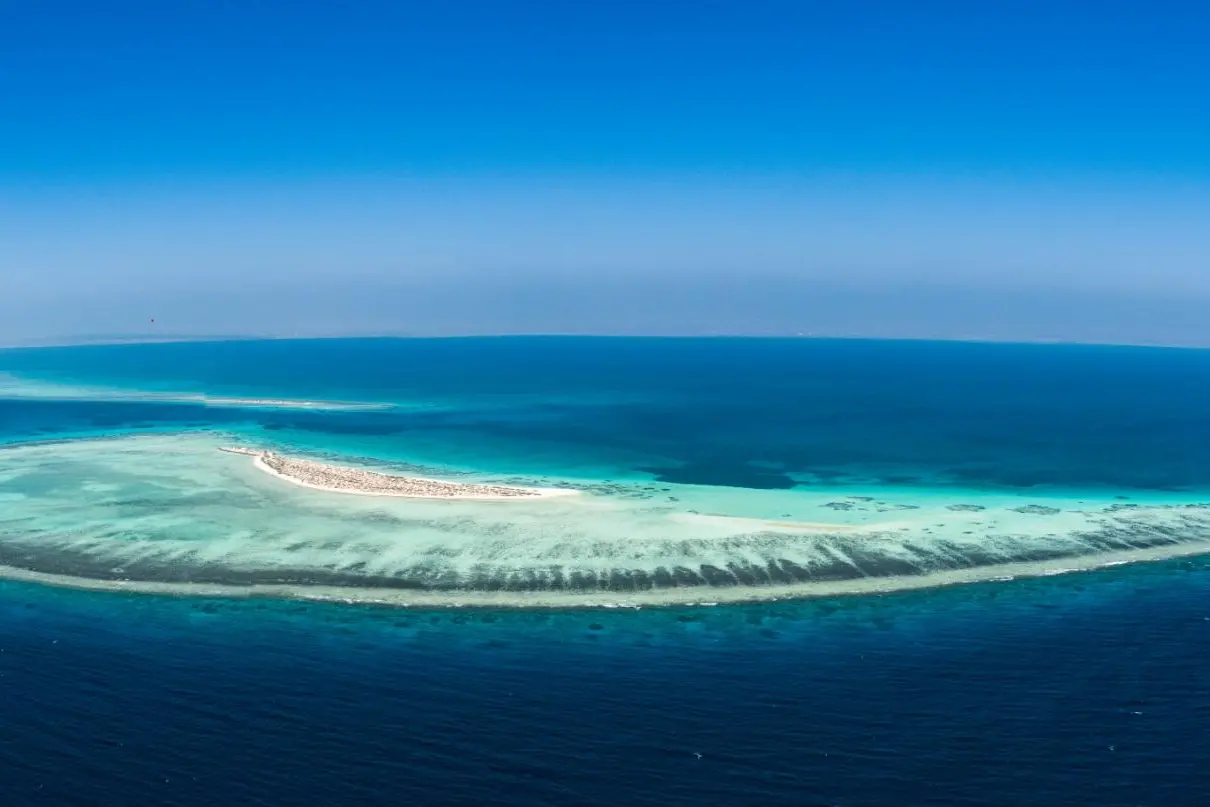PHOTO
The Red Sea Development Company (TRSDC), the developer behind the world’s most ambitious regenerative tourism project, has finalised its utilities deal with a consortium led by ACWA Power for The Red Sea Project (TRSP).
The Red Sea Project will be the largest tourism project in the world to be powered solely by renewable energy, a statement said.
The consortium led by ACWA Power has secured its financing to design, build and operate TRSP’s utilities infrastructure for 25 years, after which the operations are to be transferred back to TRSDC.
The contract includes providing 100 percent renewable power, 24 hours a day, 365 days a year. The consortium will also provide potable water, wastewater treatment, solid waste management, district cooling, telecommunication and data services across the destination spanning an area the size of Belgium.
The consortium led by ACWA Power is made up of both local and international investors. Financing comes from a mix of Saudi and international banks, including the UK’s Standard Chartered Bank and China’s Silk Road Fund.
“Today, our determination to show the world that tourism development can be done in a regenerative way reaches a new stage. By choosing not to connect to the national grid and create our own supply of energy, we are guaranteeing that The Red Sea Project will be a self-sustaining, 100 percent renewable tourism destination,” said John Pagano, CEO of TRSDC.
“This also marks an important moment for Saudi Arabia’s Vision 2030, as we secure further external investment into the project, underlining the national confidence in the destination we’re creating along the Red Sea coast”.
Clean energy day and night
Initial assets will be delivered by December 2022 with the balance coming online throughout 2023, delivering a total generating capacity circa 407 MWp of Solar PV power for Phase 1. By completion, the destination will have the infrastructure in place to generate up to up to 760,000 MWh of renewable energy per year. The power generation assets will also include the world’s largest battery storage facility of 1000 MWh, allowing the destination to remain powered by renewables day and night.
This will create a saving of at least half a million tons of CO2 each year that would otherwise be emitted into the atmosphere. That’s the equivalent to emissions from around 99,000 cars or 78,000 homes.
A unique deal
All of the utility services will be delivered under a single agreement, unique for a contract of this kind. This integrated contract will also require the development of three seawater reverse osmosis (SWRO) desalination plants, which will provide 32,500 cu m of clean water to the destination each day and a wastewater treatment facility that will take an innovative approach by using treated waste to create new wetland habitats thus supporting TRSDC in delivering its ambition of enhancing key natural habitats that encourage biodiversity to flourish and the sequestration of carbon.
"As the world grapples with the serious consequences of climate change, it is now mission-critical for nations to develop practical and tangible solutions to achieve net-zero targets. The Red Sea Project, the world's first regenerative tourism project, is an outstanding example of sustainability and environmental stewardship, limiting environmental impact through the provision of zero-carbon emitting utility services all without compromising our quality of life. As another first, in addition to zero carbon emission and zero waste and plastics, all of the utilities for this off-grid location will be delivered by ACWA Power under a single agreement, unique for a contract of this kind,” said Paddy Padmanathan, President and CEO of ACWA Power.
"The Red Sea Project is a vital component of the Saudi Vision 2030, and we are proud to partner with TRSDC in creating a global benchmark that truly embodies the long-term energy transition vision of the nation, now clearly framed by the recently published Nationally Determined Contribution (NDC) towards achieving the climate change targets set at CoP 21 in Paris”, he added.
TRSDC has adopted the same delivery model for the Amaala utilities package, and has gone to market utilising a procurement approach similar to that of TRSP, in a move that will realise synergies between the two projects and enable both to remain off grid, the statement said.
TRSP has already passed significant milestones and work is on track to welcome the first guests by the end of 2022, when the first hotels will open. Phase one, which includes 16 hotels in total and a new international airport, will complete in 2023.
Upon completion in 2030, TRSP will comprise 50 resorts, offering up to 8,000 hotel rooms and more than 1,000 residential properties across 22 islands and six inland sites. The destination will also include luxury marinas, golf courses, entertainment, and leisure facilities.
Copyright 2021 Al Hilal Publishing and Marketing Group Provided by SyndiGate Media Inc. (Syndigate.info).
Disclaimer: The content of this article is syndicated or provided to this website from an external third party provider. We are not responsible for, and do not control, such external websites, entities, applications or media publishers. The body of the text is provided on an “as is” and “as available” basis and has not been edited in any way. Neither we nor our affiliates guarantee the accuracy of or endorse the views or opinions expressed in this article. Read our full disclaimer policy here.





















